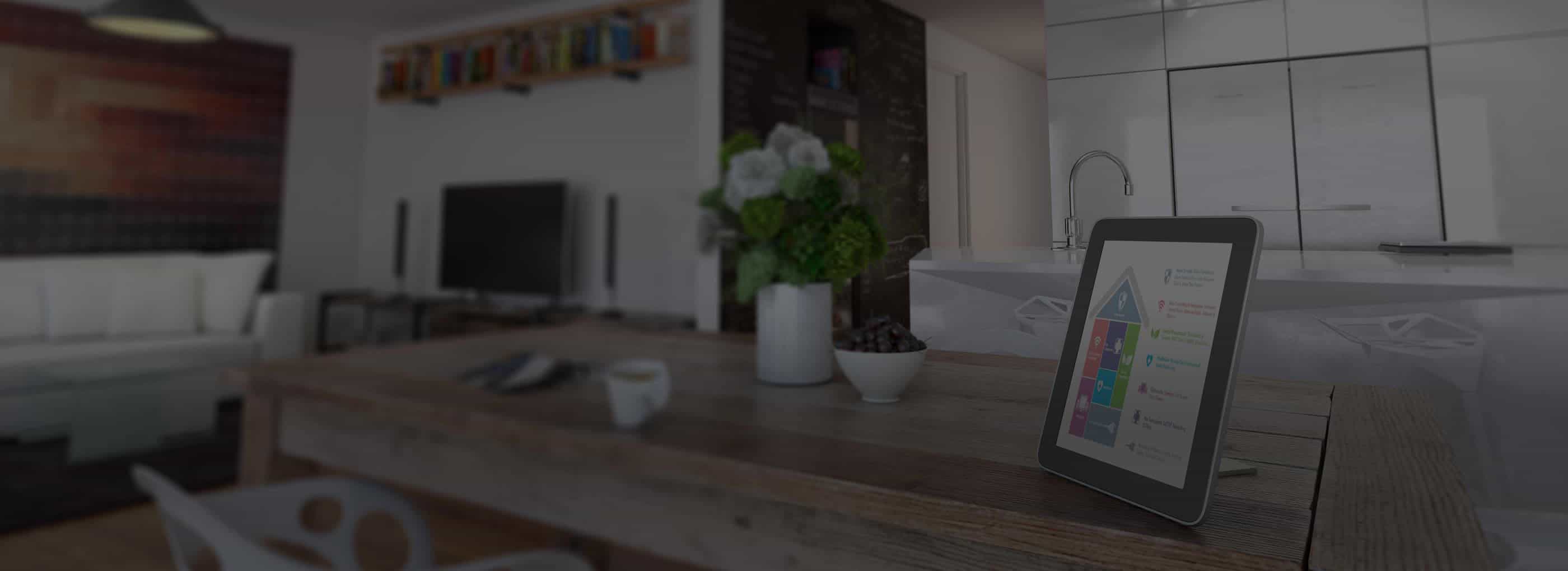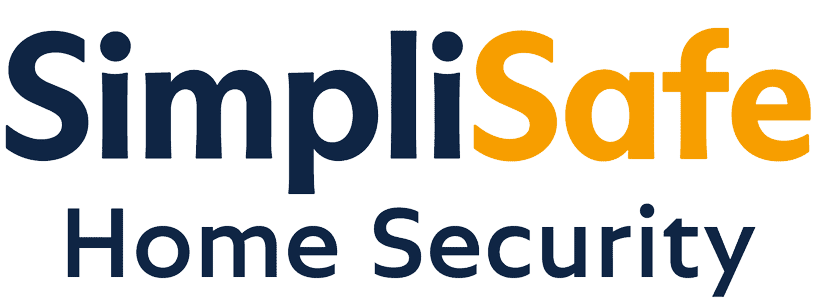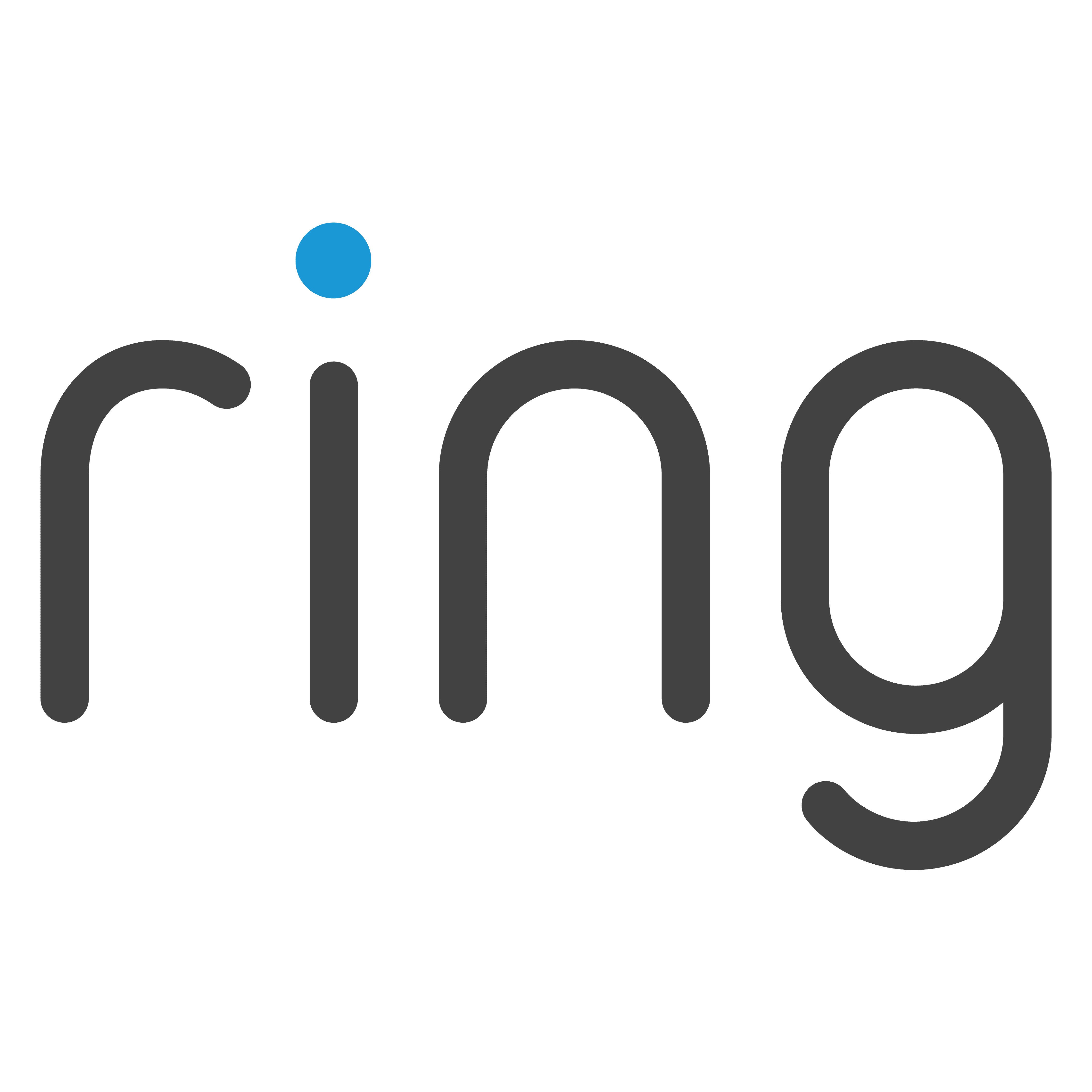Best Cloud Security Cameras
With full recording history and facial recognition, these cloud security cameras let you access your footage anytime, anywhere.

SafeHome.org may receive compensation from some providers listed on this page. Learn More
We may receive compensation from some providers listed on this page. Learn More

SimpliSafe’s revamped Core (formerly Fast Protect) protection plan offers more than just recording, but all-around security through professional monitoring, video verification, and Live Guard Protection. And it’s contract-free, which means you can upgrade and downgrade your plan anytime.

ADT’s best-in-class monitoring network with 12 facilities offers the most reliable monitoring service around. Its top-tier plan also includes Nest Aware for all your ADT cameras, which unlocks 30 days of cloud recording and advanced features like facial recognition and rich notifications.

Google Nest has streamlined their offerings in recent years. Their Nest Aware subscription service is one of the best in the business, offering 24/7 live video, video recording history, and smart features like package detection and facial recognition.



Editor’s Note: Cloud storage shouldn’t be the only thing you look for in a security camera. SimpliSafe’s home security system has our favorite and highest-ranked security camera. It comes with cloud storage and much more.
Where videos are stored is an important factor when it comes to choosing security cameras. While local recording is often free, cloud recording often requires a monthly fee. However, you get the extra benefit of having access to your videos anytime and anywhere. Plus, in case you need those videos for evidence, you know they’re safely stored off-site – thieves and criminals can’t get to them easily.
A lot of cameras offer cloud storage these days, but since they all charge a monthly fee, it’s wise to pick an option that will give you the most value. After testing several options, we’ve come to the conclusion that SimpliSafe offers that. While it’s not the cheapest, its subscription plans give you more than just cloud storage – you also get professional monitoring for your security system, cellular backup, and a special feature called Live Guard Protection. It’s not the only choice though. We also liked what we saw from ADT, Google Nest, Ring, Arlo, Zmodo, and Wyze. So without further ado, let’s talk about all those options.

SimpliSafe packages include not just security cameras, but whole-home security systems. Because of that, its best cloud subscriptions also offer professional monitoring and other features that will improve your overall security posture. We like the Live Guard Protection feature, in particular, because it gives us extra peace of mind knowing that if we’re unable to respond to alerts, SimpliSafe can use our Smart Alarm indoor camera to verify alerts and turn away intruders.
We tested SimpliSafe cameras alongside the SimpliSafe security system we reviewed. Among the cameras we tested were the SimpliCam and Smart Alarm indoor cameras, and the SimpliSafe Outdoor Camera Pro. And frankly, we weren’t thrilled about the $9.99-per-month cloud recording plan. It supports up to five cameras only and doesn’t offer much extra features. Ring offers recording for unlimited cameras for the same price.

Installing the SimpliSafe Outdoor Camera Pro outside our house.
Our favorite though is the Core (formerly Fast Protect) plan from SimpliSafe. It’s more expensive – $31.99 per month – but we felt that we got the best value for our money from it. It included professional monitoring with cellular backup for our SimpliSafe security system, plus video verification with Live Guard Protection.
| SimpliSafe Cloud Plans | Camera Recording Only | Core (formerly Fast Protect) |
|---|---|---|
| Monthly price | $9.99 | $31.99 |
| Number of cameras | Up to 5 | Up to 10 |
| Security system professional monitoring | No | Yes |
| Cellular backup for security system | No | Yes |
| Video verification | No | Yes |
| Live Guard Protection | No | Yes |
With video verification, SimpliSafe accessed all our cameras during alarm events for confirmation. It can help speed up police response if needed. With Live Guard Protection, they also accessed the two-way audio of our Smart Alarm indoor camera. If there were a real criminal inside our house, SimpliSafe would be able to warn them that police are on the way. Security cameras already deter burglars by just being there; SimpliSafe takes it to the next level, and that’s why they’re our top pick.
| Connectivity | Wi-Fi |
|---|---|
| Power | Battery |
| Field of View | Up to 140° |
| Resolution | Up to 1536p |
| Storage | Cloud |
| Smart Platform Compatibility | Alexa and Google Home |

ADT is a lot like SimpliSafe. In fact, when we compared ADT and SimpliSafe as security systems, ADT came out slightly ahead. But when it comes to cloud plans for security cameras, ADT is a little bit more expensive. The cloud plan with professional monitoring costs $44.99 per month. That’s why we put SimpliSafe ahead of ADT this time. However, what ADT offers that SimpliSafe doesn’t is a world-class monitoring network. More on that in a second.
The ADT cameras we reviewed were actually Google Nest Cams, which are next on this list. These are some of the most advanced cameras we’ve encountered, and the Nest Aware subscription gives them even more features like rich notifications and facial recognition. While it’s cheaper to get Nest Aware from Google, you get extra benefits by signing up for an ADT monitoring subscription that includes Nest Aware – that’s the $44.99 plan we mentioned earlier.

One of the Nest Cams we tested alongside our ADT security system.
In addition to Nest Aware with 30-day video storage for all your Nest cameras, ADT will monitor your security system and make best use of your cameras through video verification. That’s similar to SimpliSafe minus Live Guard Protection. What ADT offers better than SimpliSafe is reliability through monitoring redundancy. ADT has 12 monitoring centers in the U.S. and Canada – the most we’ve seen from an alarm company. That means even though ADT is protecting millions of homes, you can rest assured that help will be available whenever you need it.
There are a few downsides though, like the three-year contract that’s required for most systems and the higher monthly fee. But if you’re looking for top-notch monitoring with cloud video storage, there are few options as comprehensive as ADT.
| Connectivity | Wi-Fi |
|---|---|
| Power | Wired and battery |
| Field of View | Up to 135º |
| Resolution | 1080p |
| Storage | Limited local, cloud included |
| Smart Platform Compatibility | Alexa and Google Home |


The Nest line of products from Google is everything you’d expect from one of the biggest names in the tech industry. This lineup is extremely well designed, built to last, feature packed, and their new-and-improved Nest Cam is one of our absolute favorites for indoor and outdoor applications. Couple their equipment with a Nest Aware subscription, and you’ll get supercharged features like facial recognition.
Nest Cams are one of our favorites for numerous reasons. You can learn more about all of their equipment in our comprehensive Nest Camera review, but the Cliffs Notes version is this: They’re well-designed, they’re versatile, and they have all the features most folks are looking for when it comes to modern security cameras. Here’s a breakdown of their suite of products and their prices:
| Nest Camera | Price |
|---|---|
| Nest Cam (Battery) | $179.99 |
| Nest Cam with Floodlight (Wired) | $279.99 |
| Nest Cam Indoor (Wired) | $99.99 |
| Nest Doorbell | $179.99 |
And if you’re talking about storage, they’re head and shoulders above the competition. There are two tiers of subscription service — Aware and Aware Plus. Both offer subscribers event history, intelligent alerts, and support for a much larger network of Google products if you’re looking into home automation. The standard subscription is $6 per month or $60 per year, while Nest Aware Plus will run you $12 per month or $120 per year, which, we’ve got to say, is pretty reasonable when you consider all that you’re getting.
| Connectivity | Wi-fi |
|---|---|
| Power | Wired |
| Field of View | Up to 130° |
| Resolution | 1080p |
| Storage | Cloud |
| Smart Platform Compatibility | Alexa and Google Home |

Ring offers a diverse lineup of affordable security products for nearly every application, and they’re constantly pushing the boundaries of what security means. For example, the company is about to release a dashboard cam as well as a flying indoor drone to keep an eye on things while you’re away. Their subscription plan, like most, adds features and additional storage to all of these products, but where the plan really stands out is its affordability.
Ring has been a staple in the home security industry for years. Since the advent of their widely popular video doorbell until today, they’ve enabled millions of homes to reap the benefits of video surveillance with a wide array of equipment, which you can read all about in our hands-on analysis of Ring’s security cameras.
To bolster those cameras, Ring offers a triple-tiered cloud subscription plan called Ring Protect. Customers can choose from Basic, Plus, and Pro levels, which cost $3.99, $10, and $20 per month, respectively. Each one will provide you with 180 days of video history as well as AI-driven alerts, rich notifications, and snapshot capture. Plus will add extended warranties on your equipment, and Pro throws 24/7 professional monitoring and back up storage options into the mix.
| Connectivity | Wi-fi, ethernet |
|---|---|
| Power | Wired, battery, PoE |
| Field of View | Up to 140° |
| Resolution | Up to 1080p |
| Storage | Cloud |
| Smart Platform Compatibility | Alexa and Google Home |


Arlo cameras are simple to install and easy to use on a day to day basis. That said, they also offer some extremely advanced security features that most DIY solutions lack including 2K and 4K resolution cameras, color night vision, and professional monitoring. When you subscribe to Arlo secure, you’ll have access to their most advanced functions as well as immediate emergency response.
Arlo has some of the best basic, but powerful home security cameras on the market. And, Arlo has just added some new A.I. technology to their lineup as well and it’s called the Arlo Smart. This A.I. and computer vision technology filter will immediately send you an alert when it detects a person while ignoring motion from other objects such as swaying tree branches, etc. This new option also has a package detection and vehicle detect feature as well. The Arlo cameras come with 7-days of rolling video with cloud storage. However, they also have additional plans if you would like more advanced features and longer cloud storage options. Here’s what they look like, and what they cost:
| Arlo Plan | What You’ll Get | What it Costs |
|---|---|---|
| Secure | Up to 4K Recording One Tap Interactive Notifications Priority Care and Support |
$4.99 Per Month for Single Camera $12.99 Per Month for Unlimited Cameras |
| Secure Plus | All Arlo Secure Features 24/7 Emergency Response |
$17.99 Per Month |
| Safe & Secure Pro | All Arlo Secure Plus Features 24/7 Professional Monitoring Access to Arlo Safe |
$24.99 Per Month |
Check out our review of Arlo cameras to learn all about what it’s like protecting your home with Arlo.
| Connectivity | Wi-fi, Ethernet |
|---|---|
| Power | Wired, battery, PoE |
| Field of View | Up to 180° |
| Resolution | Up to 2160p |
| Storage | Cloud |
| Smart Platform Compatibility | Alexa and Google Home |


Zmodo has some great offerings. With Zmodo, you not only get great cameras, but you also get advanced features (for a fee) and basic cloud storage for free. Zmodo’s camera systems also come with night vision that has a range of up to 98 feet in the dark (on selected cameras only), which is amazing compared to other brand cameras. And, Zmodo has smart home integration options available as well. Here is our Zmodo summary along with a few of the Zmodo pros and cons.
There are so many great things about the Zmodo cameras such as their ability to work well with voice assistants. They also have night vision, pan and tilt cameras, smart motion alerts with set detection fields, time-lapse videos, edit and share features, two-way audio, multiple-user support, a mobile app, and more.
There are two subscription tiers for Zmodo cloud cameras. Both will give you access to advanced features like smart motion detection and activity zones. If you want to save clips for seven days, it’ll be $4.99 per month. If you want to save them for 30 days, it’s $9.99 per month. But keep in mind, that’s the price per camera. If you’re outfitting your property with multiple pieces of equipment, the costs can add up quickly. Read our Zmodo testing and review for more information.
| Connectivity | Wi-fi, ethernet |
|---|---|
| Power | Wired, battery, PoE |
| Field of View | Up to 360° |
| Resolution | Up to 1080p |
| Storage | Cloud |
| Smart Platform Compatibility | Alexa and Google Home |


Finally, a home security company offering advanced high-quality cameras at unbelievably low prices, then adding free cloud storage to boot! Here is our Wyze summary along with a few of the Wyze pros and cons.
Wyze cloud storage, called Cam Plus, has three tiers and a pretty interesting pricing model. Their basic plan is free and offers — you guessed it, pretty basic services. Cam plus light adds smart person detection and will record up to 12 seconds of events. This is a name-your-price option, and you can even go with nothing. Cam Plus offers all of Wyze’s features including unlimited event length, smart detections, and zero delays between events. For this, you’ll pay $1.67 per month per camera, billed annually.
To dive deeper into Wyze pricing and plans, see our Wyze camera cost guide. And to learn about our full experience testing these security cameras hands-on, we recommend reading our in-depth Wyze camera review.
| Connectivity | Wi-fi |
|---|---|
| Power | Wired |
| Field of View | Up to 110° |
| Resolution | Up to 1080p |
| Storage | Cloud, local |
| Smart Platform Compatibility | Alexa and Google Home |
Wireless technology has completely transformed the home security industry from its hardwired, analog beginnings decades ago. In addition to a much easier installation experience, we’re also getting more choices than ever in how we want to store our video history. Now, you’re no longer limited to just a hard drive.
But in many cases, saving and storing video to a hard drive works quite well as a camera setup. We’ve found IP camera systems with network or digital video recorder boxes to be a solid solution for storage.
FYI: Lorex makes a nice 4K Ultra HD NVR system, a great outdoor package for folks who want to record and store footage around the clock.
But we mostly test Wi-Fi systems that don’t sync up to hard drive recorders. Instead, we have access to a micro SD port built into the camera.
Those cameras, in our experience, end up working more like smart home devices than traditional security equipment. We simply pop in our micro SD card during installation and let the camera do (most of) the work, or, if that option is not available, we sign on to the cloud and pick a monthly subscription through the camera’s mobile app. In fact, we often prefer cloud storage over local video storage for security cameras.
We’re big fans of cloud storage plans. A cloud subscription will typically only set you back about $3 or $5 per month for 60-90 days of video history, image capture and video sharing, and other great features.
So the answer is no, you don’t need a hard drive for security cameras.
Pro Tip: Not really sure where to start and want to learn all the features and tech to look for in a security camera? If so, you’ll want to read our comprehensive home security camera purchasing guide.
At random times throughout our home security journey, we run into scenarios where we need to figure out whether one of our cameras is recording. In some of our tests, the camera gives us a small red light to indicate that it’s online and recording; other times, the light is blue or green.
We found that some brands handle this differently than others, but generally all in the form of light indicators. Still, it’s helpful to know what our camera is going to look like when it’s all up and running. Why? For one, we don’t want to go through all the trouble of installing, pairing, and setting up all this equipment around our home, just to end up with cameras that don’t record when we need them to.
As an example, SimpliSafe’s super DIY setup process includes a great troubleshooting menu, pictured below, that explains what all those light indicators mean, so we knew as soon as we were finished with installation whether our cameras were working or not.

SimpliCam Light Indicators
In other cases, you might want to know if a camera is recording before you walk into, say, a summer property you’re renting. Depending on the laws in your state, recording rental property guests might be illegal. (Airbnb doesn’t ban property owners from installing cameras, just FYI.)
On the flip side, however, having security cameras in your property can certainly be beneficial to the tenant, as it can help protect their belongings. These are all simple yet beneficial tips to remember as you navigate the world of security cameras.
Of course, cloud storage isn’t the only feature to look for in a camera. Check out our roundup of the best security cameras to find the perfect match in features and pricing.